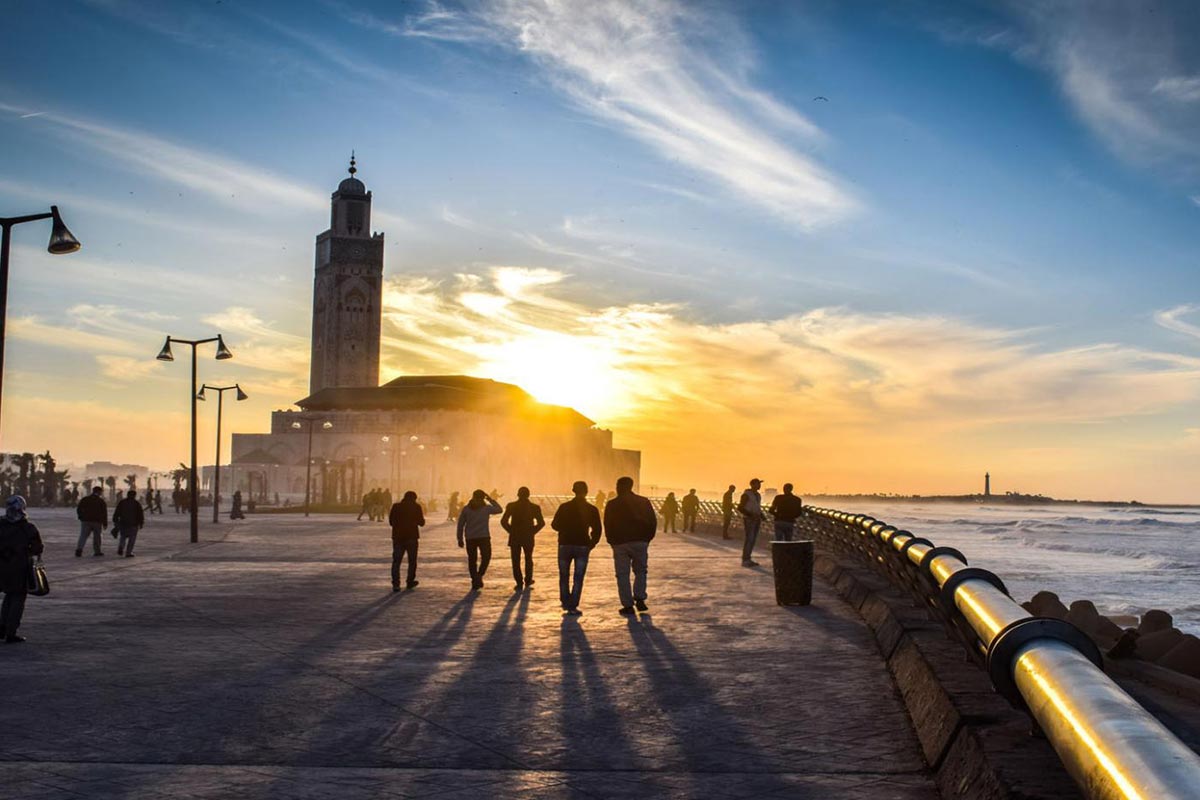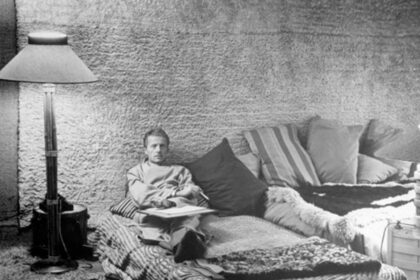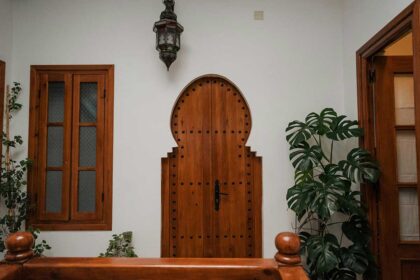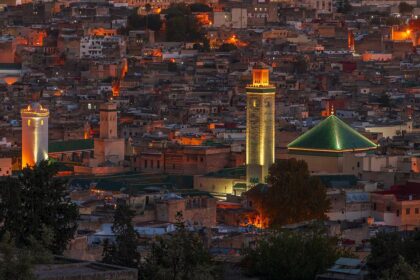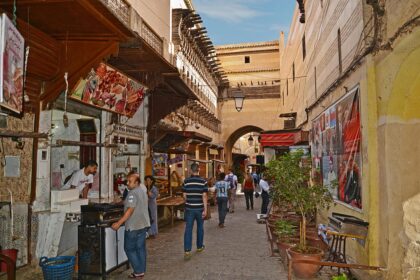Casablanca is a bustling metropolis that blends modernity with rich cultural heritage. As Morocco’s largest city and economic hub, it attracts millions of visitors every year. With its striking architecture, vibrant markets, and seaside promenades, Casablanca offers an unforgettable travel experience.
- Is Casablanca Safe for Solo Travelers in 2026?
- Crime Rate Trends: Petty Theft vs. Violent Crime
- Terrorism Advisories for Casablanca
- Safety Comparison: Casablanca vs. Marrakech, Rabat, and Fes
- Local Opinions on Tourist Safety
- Impact of Urbanization on Safety
- Police Visibility in Tourist Zones
- Casablanca Nightlife Safety After Midnight
- Quick Safety Comparison: Casablanca vs. Marrakech, Rabat, and Fes
But before you book your trip, you might be wondering: Is Casablanca safe in 2026? In this guide, we break down the current safety landscape in Casablanca, provide practical tips for solo travelers, compare safety with other major Moroccan cities, and share local opinions on tourist security. Whether you’re traveling alone, with friends, or as part of a group, understanding these key factors will help ensure a worry-free visit.
Is Casablanca Safe for Solo Travelers in 2026?
Solo travelers often have unique concerns when exploring a new destination, and Casablanca is no exception. The city is generally welcoming, and many solo adventurers report positive experiences. Here are some insights for solo travelers in Casablanca this year:
- Vibrant Tourist Areas: Popular districts such as the Corniche, Ain Diab, and the areas surrounding the Hassan II Mosque are well-patrolled and frequented by visitors. These areas are ideal for solo travelers as they provide ample opportunities to enjoy local cuisine, culture, and shopping in a secure environment.
- Staying Connected: It is wise for solo travelers to have a local SIM card or reliable mobile internet to navigate using apps like Google Maps or to call for help if needed.
- Cultural Sensitivity: Dressing modestly and respecting local customs not only shows respect but also helps you blend in. This is especially important for women traveling alone.
- Using Reputable Transport: Whether you’re hailing an official taxi or arranging a ride through your hotel, using reputable transportation reduces risks.
Solo travelers who prepare in advance and stay aware of their surroundings can enjoy a safe and enriching experience in Casablanca.
Crime Rate Trends: Petty Theft vs. Violent Crime
Understanding the crime landscape in Casablanca is crucial for any traveler. Crime in Casablanca primarily consists of petty theft and scams, while violent crime is exceptionally rare.
Petty Theft
- Common Occurrence: Pickpocketing and bag snatching are the most common crimes, especially in crowded places like markets, public squares, and on public transportation.
- Preventive Measures: Tourists are advised to keep valuables secure—using money belts or concealed bags—and to be vigilant in busy areas. Simple precautions, such as avoiding displaying expensive electronics or large sums of cash, go a long way in preventing theft.
Violent Crime
- Low Incidence: Violent crime in Casablanca is very low compared to many other global cities. The focus of criminal activity remains on petty theft.
- General Safety: With a visible police presence and efforts by local authorities, incidents of violent crime are uncommon.
Overall, while petty theft remains a concern that demands awareness, Casablanca’s safety record regarding violent crime is reassuring for tourists.
Terrorism Advisories for Casablanca
Terrorism is a global concern, and Morocco is no exception. However, in Casablanca, the risk remains low, and the local government has implemented rigorous security measures to prevent any major incidents.
- Government Measures: Authorities have increased police patrols in tourist areas and implemented advanced surveillance systems. These measures help deter potential threats.
- Advisory Levels: Most government travel advisories rate Morocco as safe with a recommendation to exercise caution, primarily due to the low likelihood of terrorist activities in urban centers like Casablanca.
- Stay Informed: As a traveler, it’s important to monitor local news and travel advisories from reliable sources such as the Government of Canada or Smartraveller.
For tourists, following the advice and staying updated with official advisories will minimize any potential risks related to terrorism.
Safety Comparison: Casablanca vs. Marrakech, Rabat, and Fes
When deciding where to travel in Morocco, safety is a key factor. Here’s a quick comparison of Casablanca with other popular Moroccan cities:
| Aspect | Casablanca | Marrakech | Rabat | Fes |
|---|---|---|---|---|
| Petty Theft Risk | Moderate in busy downtown areas | Moderate to high in souks and medina | Low in government and tourist zones | Moderate in crowded medina areas |
| Violent Crime Risk | Very low | Very low | Very low | Very low |
| Police Visibility | High in tourist zones and business districts | Heavy presence in central tourist areas | Consistent and reassuring | Good, especially near major attractions |
| Nighttime Safety | Generally safe; caution in isolated spots | Safe in busy areas; avoid dark alleys | Very safe in well-lit zones | Caution advised in narrow, poorly lit streets |
| Urbanization Impact | Modern infrastructure with increasing security measures | Mix of old and new; busy but secure | Planned urban development enhances safety | Historic areas with improved security through modernization |
Casablanca, with its modern infrastructure and robust security measures, offers a balanced level of safety comparable to Marrakech, Rabat, and Fes. However, each city has its unique challenges—Casablanca’s urban environment may expose you to more opportunistic petty crimes, while Marrakech’s lively markets require extra vigilance.
Local Opinions on Tourist Safety
Local perspectives are invaluable in understanding the true safety of a destination. Here’s what locals and recent visitors say about Casablanca:
- Warm Hospitality: Many locals in Casablanca pride themselves on their hospitality. Tourists often share positive experiences about how friendly and helpful residents are.
- Visible Security: Visitors appreciate the noticeable police presence in popular areas. This reassurance helps create a sense of security, even in bustling urban settings.
- Mixed Reviews: Some travelers report minor issues such as occasional scams or pickpocketing, but these are consistent with most major cities around the world. Most incidents can be easily avoided with basic precautions.
- Comparison to Other Cities: While Casablanca has its challenges, locals often note that it is as safe as or even safer than other large cities in Morocco when proper precautions are taken.
By engaging with local opinions on forums and travel blogs, you can gather firsthand insights that reinforce the overall perception of Casablanca as a secure destination for tourists.
Impact of Urbanization on Safety
Casablanca is Morocco’s most modern city, and urbanization has had a significant impact on its safety landscape.
- Modern Infrastructure: Rapid urban development has led to improved public services, better road networks, and enhanced communication systems. This modern infrastructure supports a higher level of safety.
- Economic Growth: The growth in tourism and business has incentivized the government to invest in security measures. More surveillance cameras, regular police patrols, and updated public transportation systems contribute to a safer environment.
- Overcrowding: On the downside, rapid urbanization can lead to overcrowding in some areas, especially in commercial districts and popular tourist spots. This can sometimes increase the risk of petty crime.
- Community Programs: Urban initiatives that promote community engagement and support local businesses have also helped reduce crime rates. Efforts to maintain clean, well-lit public spaces contribute to overall safety.
Urbanization, while bringing its own challenges, has generally improved safety in Casablanca, ensuring that the city remains a reliable destination for travelers.
Police Visibility in Tourist Zones
A key factor contributing to Casablanca’s safety is the visible presence of law enforcement in tourist areas. Local police work hard to protect visitors in busy zones:
- Dedicated Tourist Police: Casablanca has a dedicated tourist police unit that patrols major attractions such as the Corniche, the Old Medina, and the areas around the Hassan II Mosque. Their presence reassures tourists and deters potential criminal activities.
- Regular Patrols: Frequent police patrols in popular districts help maintain order and provide immediate assistance if needed.
- Collaborative Efforts: There is strong cooperation between police, local businesses, and tourism operators. This collaboration ensures that visitors receive timely information and assistance.
- Emergency Response: With quick response times and multilingual officers, emergency situations are managed efficiently. This rapid response is vital in maintaining a safe environment for all.
This proactive approach by law enforcement plays a crucial role in sustaining the safety of Casablanca for both locals and tourists.
Casablanca Nightlife Safety After Midnight
Casablanca’s vibrant nightlife offers a mix of modern clubs, traditional cafes, and elegant restaurants. However, like any major city, nighttime safety requires some extra precautions.
What to Expect After Midnight
- Lively but Controlled: Popular areas, especially around the Corniche and upscale neighborhoods, remain lively well into the night. These areas are well-patrolled by police and offer secure environments for enjoying the local nightlife.
- Isolated Areas: In contrast, some parts of the city, particularly in older districts or poorly lit neighborhoods, may become quieter and riskier after midnight. It is best to avoid these areas, particularly if you’re traveling alone.
- Transportation: Rely on reputable transportation services at night. Use official taxis or arrange rides through your hotel rather than hailing a cab off the street.
- Social Settings: If you’re planning to enjoy the nightlife, stay in groups or with trusted friends. Being part of a group not only enhances the fun but also increases your safety.
By sticking to well-lit, busy areas and using reliable transport, you can enjoy Casablanca’s nightlife without compromising your safety.
In 2026, Casablanca continues to be a dynamic and secure destination for travelers who take basic safety precautions. The city’s modern infrastructure, proactive police presence, and vibrant urban culture make it a great choice for solo travelers, families, and groups. While petty theft and scams can occur—especially in crowded areas—violent crime is rare, and terrorism risk remains low.
Key takeaways for ensuring your safety in Casablanca include:
- For solo travelers: Stay aware, use reputable transportation, and dress modestly to blend in.
- On crime: Manage your belongings carefully to prevent petty theft.
- Regarding terrorism: Stay updated with local advisories from reliable sources.
- Comparative safety: Casablanca’s security measures are on par with or exceed those of Marrakech, Rabat, and Fes.
- Local insight: Listen to local opinions and use trusted guides to enhance your experience.
- Urban impact: Modern urban development in Casablanca has largely improved public safety.
- Nightlife: Enjoy the city after midnight by sticking to well-lit and busy areas.
By following these guidelines, you can explore Casablanca with confidence and fully appreciate its unique blend of modernity and tradition. Enjoy your journey, keep these safety tips in mind, and experience the best that Casablanca has to offer in 2026!
Quick Safety Comparison: Casablanca vs. Marrakech, Rabat, and Fes
| Aspect | Casablanca | Marrakech | Rabat | Fes |
|---|---|---|---|---|
| Petty Theft Risk | Moderate in busy downtown areas | Moderate to high in souks and medina | Low in government and tourist zones | Moderate in crowded medina areas |
| Violent Crime Risk | Very low | Very low | Very low | Very low |
| Police Visibility | High in tourist and business districts | Heavy presence in central tourist areas | Consistent and reassuring | Good, especially near major attractions |
| Nighttime Safety | Generally safe; caution in isolated spots | Safe in busy areas; avoid poorly lit alleys | Very safe in well-lit zones | Caution advised in narrow, dark alleys |
| Urbanization Impact | Modern, increasing security measures | Bustling, with robust tourist patrols | Planned urban development enhances safety | Historic areas with modern improvements |







